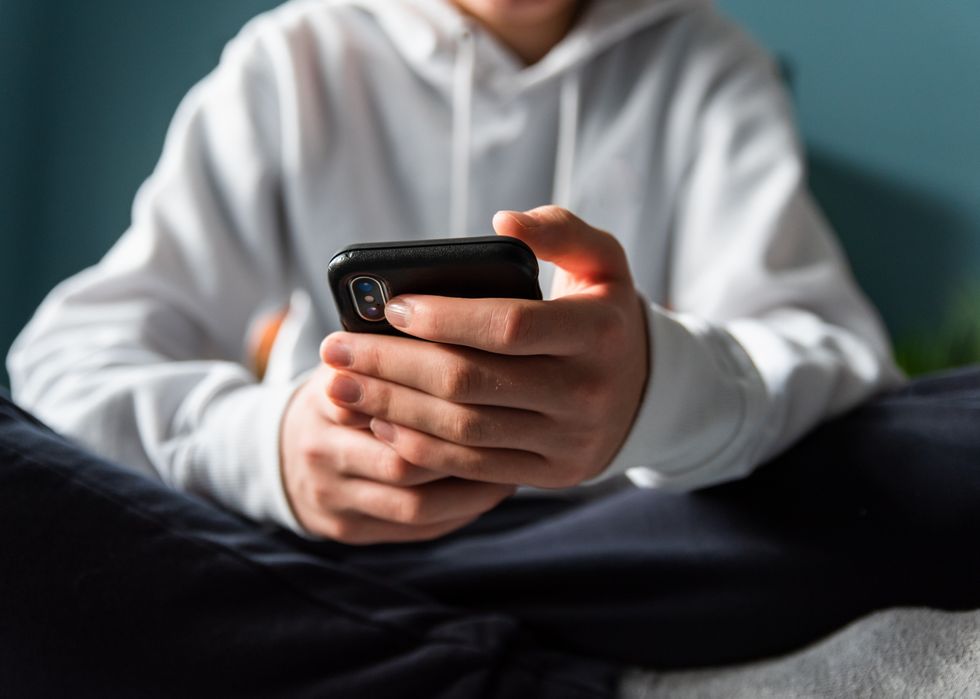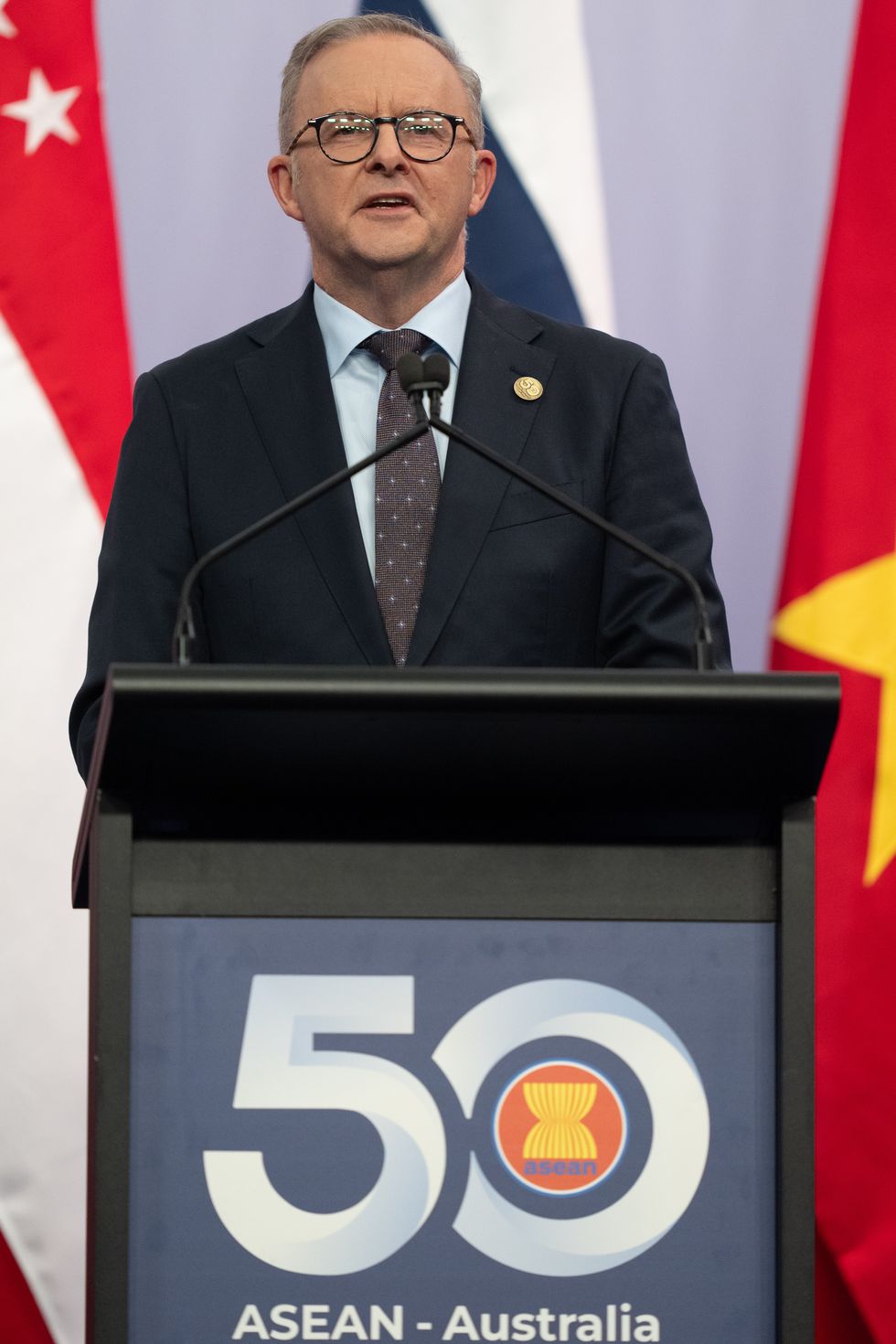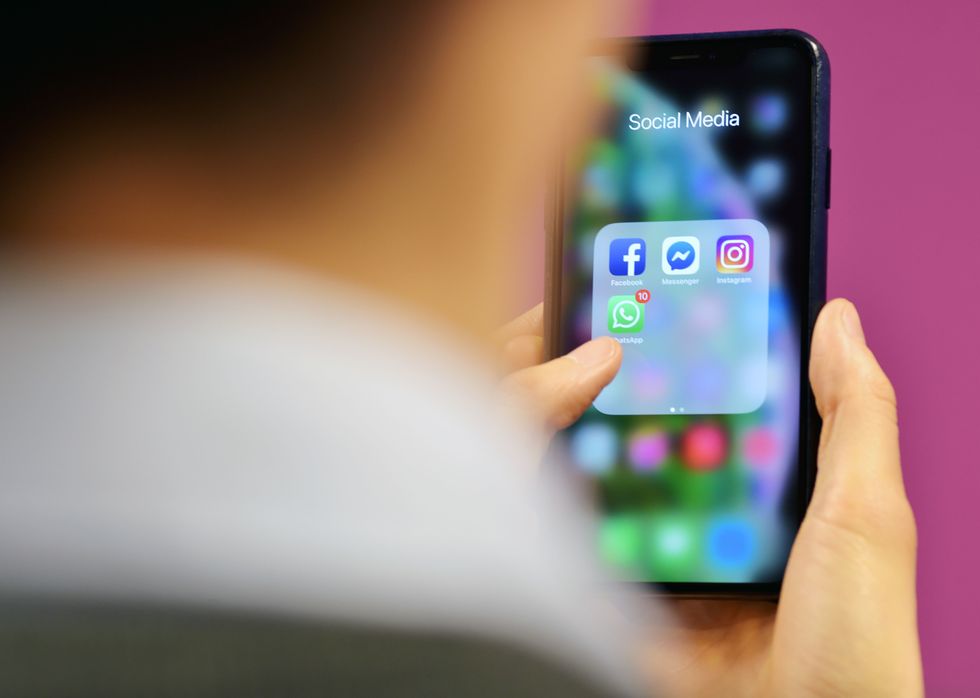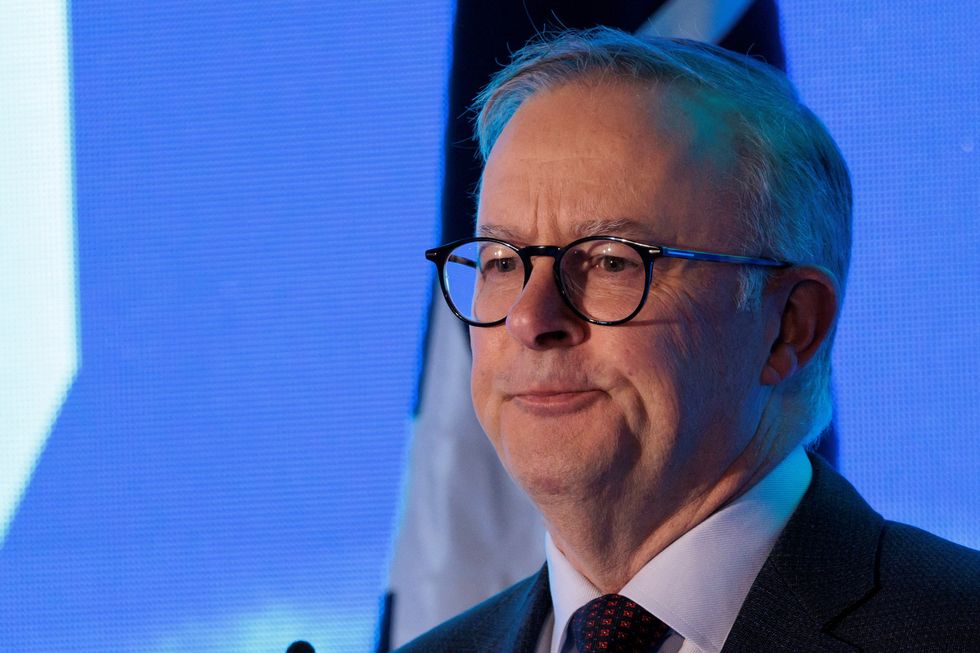Australia has passed legislation to ban children under 16 from accessing platforms like Instagram and Facebook, with companies facing fines of up to A$50million (£25.7million) for non-compliance.
The landmark legislation cleared the Australian Senate by 34 votes to 19 on Thursday and is set to become law after final approval in the House of Representatives.
The ban will not take effect for at least 12 months, giving tech companies time to implement required changes.
Prime Minister Anthony Albanese introduced the bill as a crucial measure to safeguard young Australians’ wellbeing.
“This is a global problem and we want young Australians essentially to have a childhood,” Albanese told parliament last week.
The legislation aims to protect young people from social media “harms”, with Albanese emphasising the government’s focus on giving “parents peace of mind.”

A stock image of a child using a phone
GETTY
The new rules do not include exemptions for existing users or those with parental consent, marking the highest age limit set by any country for social media access.
Polling suggests the majority of Australian parents and caregivers support the reforms.
“For too long parents have had this impossible choice between giving in and getting their child an addictive device or seeing their child isolated and feeling left out,” said Amy Friedlander, who campaigned for the ban.
The legislation does not specify which platforms will be banned, with these decisions to be made later by Australia’s communications minister in consultation with the eSafety Commissioner.
Canberra plans to rely on age-verification technology to implement the restrictions, with platforms responsible for adding these processes themselves.
LATEST DEVELOPMENTS:

Anthony Albanese
GETTY
However, digital researchers have warned there are no guarantees the technology – which could involve biometrics or identity information – will work effectively.
Gaming and messaging platforms will be exempt from the ban, as will sites that can be accessed without an account, meaning YouTube is likely to be unaffected.
Critics have raised concerns about privacy protection and warned that restrictions could be easily circumvented using VPNs to mask users’ locations.
Children who find ways to bypass the rules will not face any penalties themselves.
The specific age-verification methods will be tested in the coming months, though details remain unclear.
Major tech companies have strongly criticised the legislation, with Meta declaring it would be “ineffective” at achieving its goal of making children safer.
 Australia is set to BAN social media for childrenPA
Australia is set to BAN social media for childrenPATikTok expressed concern that the government’s definition of social media platforms was “broad and unclear”, suggesting “almost every online service could fall within [it]”.
X questioned whether the bill was compatible with international regulations and human rights treaties Australia has signed.
Youth advocates complained they were excluded from the debate about solutions.
“We understand we are vulnerable to the risks and negative impacts of social media but we need to be involved in developing solutions,” the eSafety Youth Council stated.
Prime Minister Albanese acknowledged the complexity of the debate but remained firm, saying: “We all know technology moves fast and some people will try to find ways around these new laws but that is not a reason to ignore the responsibility that we have.”
 The Australian PM has scrapped the republican ministerial role, which he created following his 2022 electionReuters
The Australian PM has scrapped the republican ministerial role, which he created following his 2022 electionReutersThe Australian legislation has drawn international attention, with other nations considering similar measures.
France introduced laws last year requiring parental consent for social media access for under-15s, though research shows nearly half of users circumvented the ban using VPNs.
In the United States, a similar law in Utah was struck down by a federal judge who ruled it unconstitutional.
Norway has announced plans to follow Australia’s example with comparable restrictions.
The UK Government has also shown interest, with the technology secretary recently suggesting a similar ban was under consideration, though he later clarified it was not planned “at the moment”.
Australia’s strict approach to social media regulation is being closely monitored by global leaders as a potential model for future legislation.